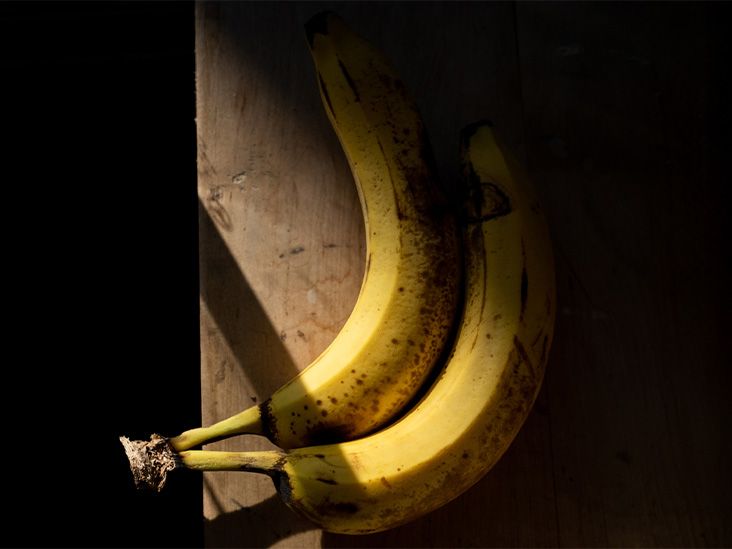A New Perspective on Blood Pressure: The Potassium-Sodium Ratio
In the dim light of a bustling farmers’ market, vibrant fruits and vegetables beckon health-conscious consumers. Among them, bananas, often crowned as nature’s candy, hold a hidden power: they are rich in potassium. An emerging body of research suggests that this unassuming fruit may play a pivotal role in the fight against high blood pressure, especially when paired with a proper understanding of sodium intake. With hypertension affecting approximately one in three adults globally, the implications of these findings are profound.
The Sodium-Potassium Paradigm Shift
A recent study published in the American Journal of Physiology-Renal Physiology has shifted the conversation surrounding hypertension management. Researchers, led by Dr. Anita Layton at the University of Waterloo, uncovered that increasing the dietary ratio of potassium to sodium may be more efficacious in reducing blood pressure compared to merely cutting down on salt. “Our ancestors had a different sodium-to-potassium ratio in their diets, which played a crucial role in maintaining their cardiovascular health,” Dr. Layton advises, emphasizing the drastic dietary changes humans have undergone over millennia.
Beyond the Salt Shaker
Traditionally, individuals diagnosed with high blood pressure are advised to reduce their sodium intake. However, the results from Dr. Layton’s team suggest that this approach might be overly simplistic. “Increasing potassium can enhance the kidneys’ ability to excrete sodium,” she explains. This mechanism not only aids in lowering blood pressure but also shifts the focus from a purely reductionist view to a more balanced nutritional approach.
The study utilized gender-specific mathematical models to simulate how sodium and potassium interact within the body. Initial findings reveal a stark contrast in responses between men and women: while men typically develop hypertension more easily, they also tend to benefit more significantly from increased potassium intake. “The difference lies in the molecular structure of kidneys across sexes, which affects sodium excretion,” notes Dr. Layton, highlighting a new frontier in personalized dietary recommendations.
Implications for Global Health
This research resonates deeply within the context of a growing public health crisis. Hypertension is not merely a clinical measurement; it is a major risk factor for heart disease and stroke. Dr. Cheng-Han Chen, an interventional cardiologist from MemorialCare Saddleback Medical Center, emphasizes the importance of dietary interventions. “With the right dietary adjustments, we could mitigate the burden of cardiovascular diseases on healthcare systems worldwide,” he states, framing dietary changes not just as a personal choice, but as a collective responsibility.
- Understanding the Role of Potassium: High potassium intake can help lower blood pressure more effectively than sodium reduction alone.
- The Importance of Balance: Focusing solely on salt reduction may overlook significant benefits from increasing potassium-rich foods.
- Gender-Responsive Guidelines: Dietary recommendations should consider physiological differences among genders for optimal results.
Navigating Dietary Changes
For individuals seeking to amplify their potassium intake, Monique Richard, a registered dietitian nutritionist, suggests a holistic approach. “Potatoes, especially in their skins, are a remarkable source of potassium, often overlooked in modern diets,” she remarks. Richard encourages diversifying potassium sources beyond the familiar banana to include nutrient-rich foods like:
- Lentils and beans: Packed with potassium and fiber, these legumes also contribute to heart health.
- Dark leafy greens: Spinach and broccoli provide not just potassium but a host of other beneficial nutrients.
- Citrus fruits: Oranges and melons can sweeten dietary diversity while contributing to potassium intake.
Conversely, Richard cautions against a common misconception: “Swapping table salt for sea salt does not translate to lower sodium intake.” With sodium lurking in processed foods, awareness becomes vital in navigating dietary changes.
A Holistic Approach to Health
The landscape of hypertension is evolving, and as new research sheds light on the intricate balance of electrolytes in our diets, it reaffirms the critical interplay of nutrients. As public health advocates encourage a shift in dietary guidelines, the role of potassium invites a nuanced dialogue about food choices. “The conversation shouldn’t just be about what not to eat; it should also encompass what we should be embracing,” Dr. Layton concludes, signaling a transformative moment in the narrative of nutritional science.
In a world where dietary habits shape our health outcomes, the wisdom gleaned from these studies prompts a deeper reflection on our relationship with food. As we blend the insights of science with the simplicity of nature’s offerings, we may just find the keys to a healthier future—one banana at a time.
Image Source: www.medicalnewstoday.com


